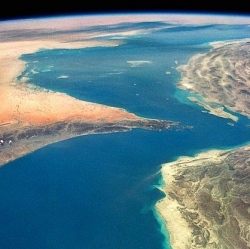
After the exit of launch services provider SpaceX as its rocket subcontractor, Stratolaunch Systems has turned to Orbital Sciences of Dulles, Va., to keep the world’s largest air-launch-to-orbit system on track for a 2017 test flight.
What those configurations were, neither Stratolaunch nor Orbital would say. Huntsville, Ala.-based Stratolaunch had been banking on using a liquid-fueled booster from SpaceX. Orbital specializes in solid-fueled rockets. The first stage of the liquid-fueled Taurus 2 rocket Orbital expects to debut in 2013 relies on a Ukranian-supplied first stage powered by a rebadged Russian engine. While the company has extensive experience with air-launched systems, it has not built one with the payload-carrying capacity that Stratolaunch seeks.
Orbital’s solid-fueled Pegasus rocket, which can loft 450 kilograms to low Earth orbit, has logged 41 launches since 1990. Only three of these were failures, according to an online mission history maintained by Orbital. However, Pegasus-class business has all but dried up. The single Pegasus XL launch of 2012 was the rocket’s first flight in four years, and there is only one Pegasus XL mission on Orbital’s manifest today: the April 2013 launch of NASA’s Interface Region Imaging Spectrograph space telescope.
